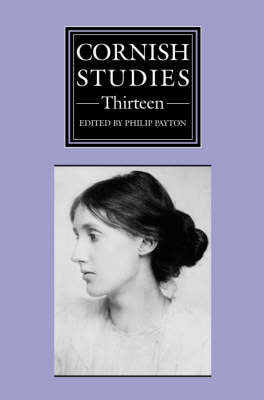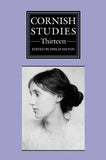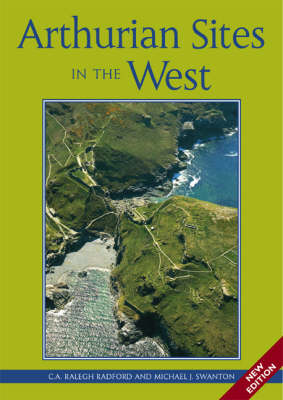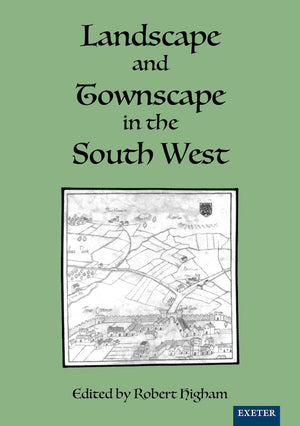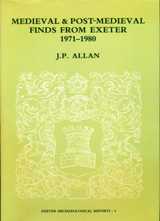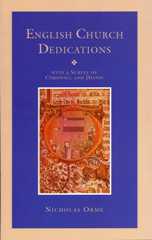University of Exeter Press
Cornish Studies Volume 13
Couldn't load pickup availability
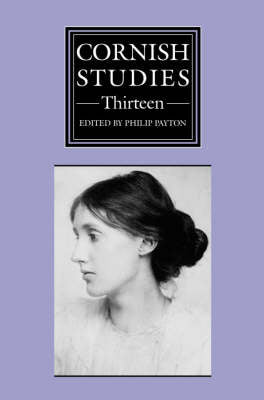
- 336 Pages
The thirteenth volume in this acclaimed paperback series includes articles on Cornish emigration, Cornish literature, the novelist Virginia Woolf, the poet Jack Clemo, Cornish mining history, Cornish folklore, the medieval Cornish-language miracle plays, and William Scawen: the seventeenth-century Cornish patriot and language revivalist.
The thirteenth volume in this acclaimed paperback series includes articles on Cornish emigration, Cornish literature, the novelist Virginia Woolf, the poet Jack Clemo, Cornish mining history, Cornish folklore, the medieval Cornish-language miracle plays, and William Scawen: the seventeenth-century Cornish patriot and language revivalist.
'Congratulations are due to Professor Philip Payton, the Institute of Cornish Studies and University of Exeter Press on this, the tenth volume in the series Cornish Studies. Its publication marks an important milestone in the development of Cornish Studies as an area of academic activity. Over the last decade or so we have seen the emergence of an energetic 'new' Cornish Studies, which has sought to engage with major scholarly debates such as those surrounding 'Britishness', 'Celticity', identity, gender, the politics of the periphery, language revival, and ethnicity and emigration. Often courageous and always innovative, these new interdisciplinary and comparative approaches to studying Cornwall and the Cornish have allowed Cornish Studies to escape the narrow confines of 'English local history' to embrace what have been termed the 'new Cornish historiography' and the 'new Cornish social science'. Nowhere has this been more evident than within the pages of Cornish Studies itself, the series becoming a showcase for the latest and best Cornish work as well as placing consideration of Cornwall and the Cornish very firmly within the wider context of the 'Atlantic Archipelago'.' (Professor Máiréad Nic Craith, Academy for Irish Cultural Heritages, University of Ulster)
'The outcome and intention has been to place Cornwall squarely in new debates about the nature of 'Britishness' and the territorial identities' (Western Morning News)
'. . . essential reading for any ‘student of Cornwall’' (Cornish Studies Six, Cornish Forefathers Society, April 1999)
'Its tenth anniversary edition, now out from the University of Exeter Press, essentially seeks to define where “New Cornish Studies” has travelled over the past decade and where it ought to be travelling in the decade to come.' (Cornish Studies Ten, Western Morning News, February 2003)
'The outcome and intention has been to place Cornwall squarely in new debates about the nature of “Britishness” and the territorial identities (Cornish Studies Ten, Western Morning News, February 2003)
Introduction
1. Discourse and Social Science in Cornish Studies-A Reply to Bernard Deacon, Malcolm Williams
2. Scatting it t'lerrups: Provisional Notes Towards Alternative Methodologies in Language and Literary Studies in Cornwall, Alan M. Kent
3. Why Move the Lighthouse? Virginia Woolf's Relationship with St Ives, Michael Bender
4. Jack Clemo's Mystical-Erotic Quest, Andrew C. Symons
5. William Scawen (1600-1689)-A Neglected Cornish Patriot and Father of the Cornish Language Revival, Matthew Spriggs
6. Staging the State and the Hypostasization of Violence in the Medieval Cornish Drama, Paul Manning
7. 'Too Rarely Visited and Too Little Known': Travellers' Imaginings of Industrial Cornwall, Cynthia Lane
8. Bridget Cleary and Cornish Studies: Folklore, Story-telling and Modernity, Philip Payton
9. Jewish Ghosts, Knackers, Tommyknockers, and other Sprites of Capitalism in the Cornish Mines, Paul Manning
10. Migration Networks and the Transnationalization of Social Capital: Cornish Migration to Latin America, A Case Study, Sharron P. Schwartz
11. Remittances Revisited: A Case Study of South Africa and the Cornish Migrant, c. 1870-1914, Gary Magee and Andrew Thompson
Review Article
12. Rethinking Henry Jenner, Amy Hale







